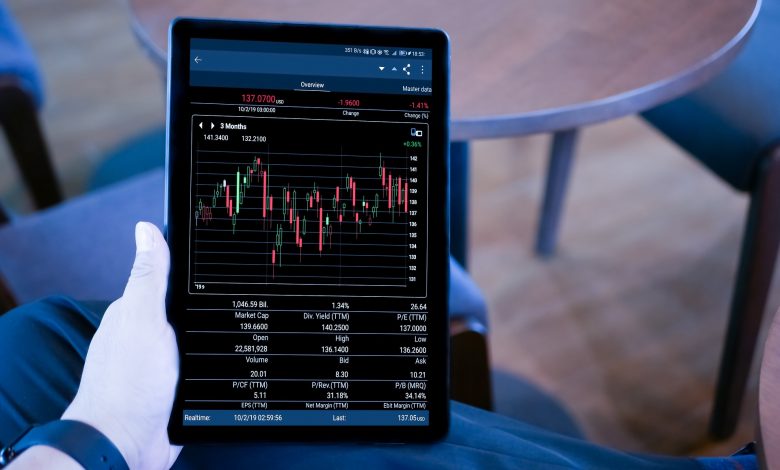Before trading forex, here are a few things you should know

What exactly is foreign exchange trading?
Forex traders speculate by buying and selling currencies on the open market. It can also be used as a “hedge” against the risk of loss due to fluctuations in the value of another currency. Hedging is a method of risk management used to protect against financial loss.
It might not seem like a big deal to convert a few hundred dollars in Christmas shopping money. Of all financial markets, however, the foreign currency (FX) market is the largest and most dynamic. The sheer size of the numbers is staggering. The Bank for International Settlements has released the findings of a new triennial study estimating the value of daily currency trade at $US6.6 trillion in 2019. Are they available 24/7?
In contrast, the foreign exchange (Forex) market operates around the clock, five days a week, thanks to four major trading centres located in different regions of the world and thus in different time zones. When trading on the foreign exchange market ceases in one location, it will not stop functioning elsewhere. Unlike visitors who may need foreign currency notes and coins to pay for a drink while relaxing by the pool, forex traders aren’t always keen to accept the physical delivery of the currencies they trade.
Institutional traders, who deal in foreign exchange on behalf of customers such as individuals, banks, and corporations, are responsible for most FX transactions. The foreign currency market was previously a high-stakes game, accessible primarily to major institutions and the extremely wealthy. However, as time has progressed, the role of private investors in the foreign exchange market has diminished.
To what extreme does one engage in FX trading?
Foreign exchange, or forex, is utilized for several purposes, including hedging against currency and interest rate risk. Inflationary pressures have emerged as a major problem for the world’s economies, drawing extra attention to interest rate levels.
Foreign exchange is also used for geopolitical betting, such as the recent escalation of tensions between Russia and the West over Ukraine. Political and natural disasters can have a significant impact on the value of a country’s currency, which can have positive or negative consequences for international trade.
Firms rely on the foreign exchange market as well. To hedge against the possibility of loss due to fluctuations in exchange rates, a single headquarters of a multinational corporation may use the foreign exchange market.
Foreign exchange trading is a fantastic technique to increase portfolio diversification. Since the foreign currency market is open five days a week, 24 hours a day, forex traders can react swiftly to news that may not have an immediate impact on a country’s stock exchange.
When analysing the foreign exchange market, economists look at a variety of economic variables.
- Interest rates are quantified by the inflation rate.
- The economic policies of the country and the state of its current account.
- An administration’s stance on meddling in the currency market.
In Forex trading, the underlying currency is not physically traded; hence, the name “over the counter.” The global financial system’s banks and other financial institutions cooperate to maintain market stability.
People who were unable to make currency exchanges on their own may have hired a broker in the past. Anyone may engage in direct currency trading thanks to technical developments, the popularity of smartphones, and the availability of numerous online currency trading platforms.
How does one go about buying and selling foreign currency?
Determining whether one currency will appreciate or depreciate relative to another is the primary focus of foreign exchange trading. To make a profit, a trader can buy a currency at a low price and then sell it at a higher price. The term “going long” describes this strategy. If an investor believes a currency’s value will decline tomorrow, he or she may choose to sell the currency today and repurchase it at a cheaper price tomorrow. The word for this kind of behaviour is “going short.”
When it comes to foreign exchange, where do you even begin?
Some examples of Forex trading strategies are:
- SPOT MARKET – The Instantaneous Market
This is a shop where people buy things to consume right away. Here, FX pairs are exchanged in real-time, with prices determined by market forces such as supply and demand.
- FORWARD MARKET – The Predictive Market
For this reason, forex brokers enter binding contracts to ensure the delivery of a specified sum of money at a specified future exchange rate.
- FUTURES MARKET
In contrast to the foreign exchange (FX) and spot markets, traders using contracts on a specialized exchange can buy or sell a set amount of currency at a set exchange rate on a future date.
You can choose and choose from numerous forex brokers‘ hosted websites and several trading software programs. You should have a firm grasp on the types of trades you’d like to make, and you should investigate the fees associated with making those trades with the provider of your choice. If the currency pair being traded is unusual, the spread on a deal is more likely to be high and costly.
You can talk to other people who use the same platform as you do in forums, which are available on many of the most popular ones. If you’re a novice trader who doesn’t yet have any experience, you should investigate services that offer online education and practice trading with virtual money.
The Crux of The Matter
Since the foreign exchange market is active 24/7 (excluding weekends), having accessibility to assistance from your platform provider is advantageous. When you reach trading levels, many providers will open and close positions for you. This prevents account surprises.
If you want to make money investing in currencies, you must conduct research. You’ll need to know when countries will release their GDP, balance of payments, inflation rates, etc. Equity markets, interest rates, and recent news market events can affect a currency’s strength or weakness.




